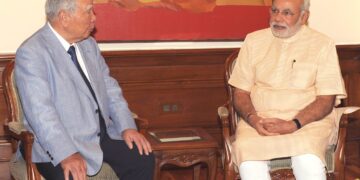Fort Myers, Florida: United States Attorney Roger B. Handberg announces that Al Clint LaRoche (43, West Palm Beach) today pleaded guilty to two counts of bank fraud. He faces a maximum penalty of 30 years in prison for each count. A sentencing date has not yet been set.
According to the plea agreement, between April 2020 and April 2021, LaRoche submitted false and fraudulent First Draw and Second Draw Paycheck Protection Program (PPP) loan applications to a financial institution through a financial services and technology company based in Naples for his business Bornwild, LLC. The loan applications contained numerous false representations and certifications, including Bornwild’s average monthly payroll, number of employees, and that the loan funds would be used for authorized purposes.
In addition, to qualify for each PPP loan, and in support of his fraudulent loan applications, LaRoche submitted fake and fictitious quarterly federal tax returns (IRS Form 941s) for Bornwild that contained false representations about the business’s quarterly payroll expenses. LaRoche’s false and fraudulent representations caused the PPP lender to approve and fund a First Draw and Second Draw PPP loan, resulting in the deposit of approximately $1,078,652.50 into bank accounts LaRoche controlled. LaRoche then unlawfully used the funds for unauthorized purposes and for his own personal enrichment, including the purchase of a Mercedes Benz SUV, jewelry, hotel and travel stays, various retail purchases, and more than $350,000 in cash withdrawals.
The Coronavirus Aid, Relief, and Economic Security (CARES) Act is a federal law enacted March 2020. It is designed to provide emergency financial assistance to millions of Americans who are suffering the economic effects resulting from the COVID-19 pandemic. One source of relief provided by the CARES Act is the authorization of up to $349 billion in forgivable loans to small businesses for job retention and certain other expenses through the PPP. In April 2020, Congress authorized over $300 billion in additional PPP funding.
The PPP allows qualifying small businesses and other organizations to receive loans with a maturity of two years and an interest rate of one percent. Businesses must use PPP loan proceeds for payroll costs, interest on mortgages, rent and utilities. The PPP allows the interest and principal to be forgiven if the business spends the proceeds on these expenses within a set time period and uses at least a certain percentage of the loan toward payroll expenses.
This case was investigated by the Federal Bureau of Investigation. It is being prosecuted by Assistant United States Attorney Trent Reichling.
















